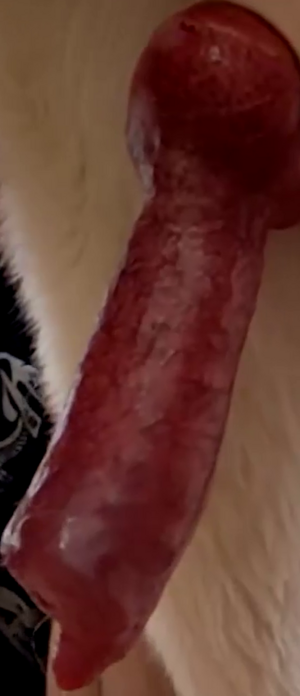Canine Penis: Difference between revisions
m The LinkTitles extension automatically added links to existing pages (<a rel="nofollow" class="external free" href="https://github.com/bovender/LinkTitles">https://github.com/bovender/LinkTitles</a>). |
No edit summary |
||
| Line 1: | Line 1: | ||
[[File:Canine Penis.png|thumb]] | |||
==Canine Penis== | ==Canine Penis== | ||
{{stub}} | {{stub}} | ||
Revision as of 22:39, 14 April 2023

Canine Penis
| This article is a stub. You can help Zoophilia.wiki by expanding it. |
The canine penis is shaped very differently from that of other animals, having a pointed tip, shaft which is usually long and rather thin, and then a large bulbous knot at the base (also known as the bulbus glandis). This knot helps the dog to sometimes become attached to his mate in what is known as the copulatory tie. Their entire penis is inside of a penile sheath.
In the center of the dog’s penis is a bone known as the baculum, os penis, or simply ‘os’. This enables him to achieve penetration before his penis is erect so that he is able to penetrate prior to his knot enlarging in size.
At the tip of the dog’s penis, there is a small opening for the urethra, where sperm and urine exit the body. There is also a separate indentation at the end of the dog’s penis, caused by his baculum interrupting the connective tissue. Some dogs enjoy light pressure applied to this area with the tongue or a wet finger.
The entire time the dog’s penis is erect, he will be shooting a clear watery fluid in fits and stops. His precum and actual ejaculate look very similar and will not be as thick or as opaque as a human or horse’s cum. Pressure behind the knot or gentle tugging on the knot will prolong his orgasm and cause him to ejaculate more.